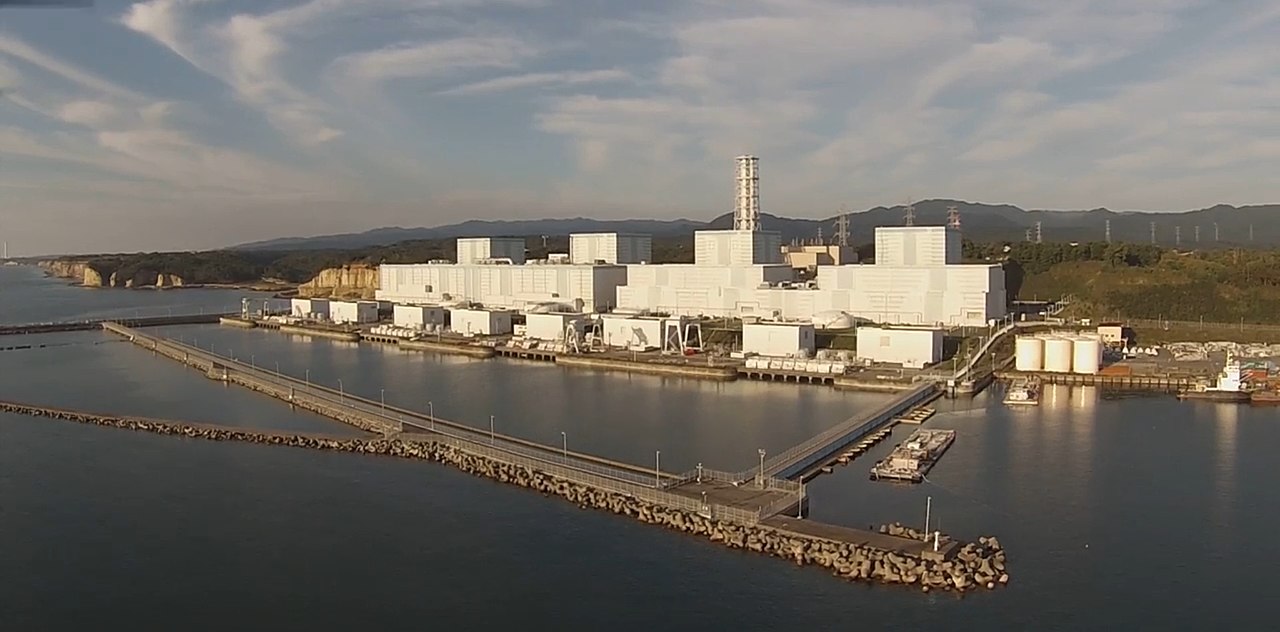UN agency backs Japan’s plan to release Fukushima water
The director-general of the International Atomic Energy Agency today presented a report that gives Tokyo the green light to proceed. He will shortly travel to South Korea. Prime Minister Fumio Kishida’s government has not yet announced a starting date. The Chinese ambassador to Japan and a South Korean leader immediately issued a protest.
Tokyo (AsiaNews/Agencies) – The International Atomic Energy Agency (IAEA) gave its thumbs up to Japan’s plan to release into the Pacific Ocean treated radioactive water from the Fukushima nuclear power plant, saying that it is consistent with relevant international safety standards, this despite opposition from neighbouring countries.
At a press conference held today in Tokyo, IAEA Director General Rafael Mariano Grossi presented the agency’s final report to Japanese Prime Minister Fumio Kishida.
According to its findings, the release will have "a negligible radiological impact on people and the environment," Grossi said, stressing that Japan has all the elements to "move on to the next phase.”
Prime Minister Kishida said that Japan will respond "sincerely" to the organisation's review and continue to explain its plan to affected local communities and the international community "with a high level of transparency.”
The Japanese leader did not announce a date. Instead, he noted that his government would review the IAEA assessment before deciding when to release the water. The latter has gone through an advanced liquid processing system and will be released via an underwater tunnel.
The water is contaminated with tritium, an element that cannot be removed, and is currently stored in tanks inside the Fukushima nuclear power plant, which was badly damaged in 2011 by an earthquake and the tsunami that followed.
Even today, the nuclear reactor still needs to be cooled with ocean water that continues to accumulate in tanks. According to the company that operates the plant, Tokyo Electric Power (TEPCO), the available space in tanks is running out.
Grossi will stay in Japan for two more days, during which he will meet local fishermen (concerned about the negative impact the release might have on their products). He is also scheduled to open a new IAEA office in Fukushima that will monitor the release process "permanently" and assess it “for decades to come".
This weekend, the UN official will travel to South Korea, one of the countries that has most strongly objected to Japan’s plans, “to provide answers", cognisant of the fears South Korea and other countries in the region have. Nevertheless, Grossi noted that it is not up to him to persuade their governments to back Japan's decision.
Once it gets the green light, TEPCO is expected to start releasing the water sometime this summer.
The Japanese government first announced its plan in 2021. Afterwards, an IAEA task force with experts from 11 countries conducted five review missions, published six technical reports, met many times with Japanese government officials, and visited the plant several times.
Still, for China's ambassador to Japan, Wu Jianghao, speaking at a news conference today, there is no precedent for the release of radioactive wastewater into an ocean after a nuclear accident.
“The Japanese side says that nuclear power plants around the world are all discharging wastewater, but that water has not been exposed to a reactor core that has melted,” Wu said, indirectly slamming the AIEA report.
In a statement, the Chinese embassy noted that other experts have suggested alternative options, such as geological disposal, vapour release and an underground repository ,but Japan has ignored them.
The issue is also a hot topic in South Korea, where opposition parties have accused President Yoon Suk-yeol of siding with Japan even before the release of a report by a South Korean scientific delegation sent in May.
“The Japanese government hasn't been clear about how the wastewater could affect sea life, particularly the amount of radioactive elements that could end up in our food," said Kim Ji-moon, from the left-leaning Justice Party.
"Our country is one of the world's highest per capita consumers of seafood, so this is a matter of health and safety," Kim told Nikkei Asia.
Following the accident, South Korea has imposed a ban on seafood imports from the Fukushima area, a measure that will remain in place for years.
The Pacific Islands Forum, which includes Australia and New Zealand, also expressed its objections to the Japanese plan.
12/02/2016 15:14







.png)










